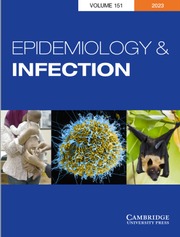Article contents
Trimethoprim-resistance and its transferability in E. coli isolated from calves treated with trimethoprim-sulphadiazine: a two year study
Published online by Cambridge University Press: 15 May 2009
Summary
Regular examination of rectal swabs revealed the presence of very low numbers of trimethoprim resistant Escherichia coli in the faeces of 10 batches of calves successively reared in the same shed and none of these strains transferred trimethoprim resistance to E. coli K12. All the calves had received oral doses of 30 mg/kg day of trimethoprim-sulphadiazine for 5 consecutive days. From two subsequent batches of calves reared in the same shed, however, several isolations were made of E. coli with transmissible R factors determining trimethoprim and streptomycin resistance. Shortly before these strains were detected, isolations of E. coli with similar properties had been made from other calves, in a different shed, which had been fed much higher doses of trimethoprim-sulphadiazine. Serological evidence indicated that all the E. coli isolated carrying this R factor belonged to the same strain, which had apparently spread from the second shed to the first. No evidence of ‘in vivo’ transfer of the R factor to other enteric bacteria was obtained.
Information
- Type
- Research Article
- Information
- Copyright
- Copyright © Cambridge University Press 1973
References
REFERENCES
- 9
- Cited by

